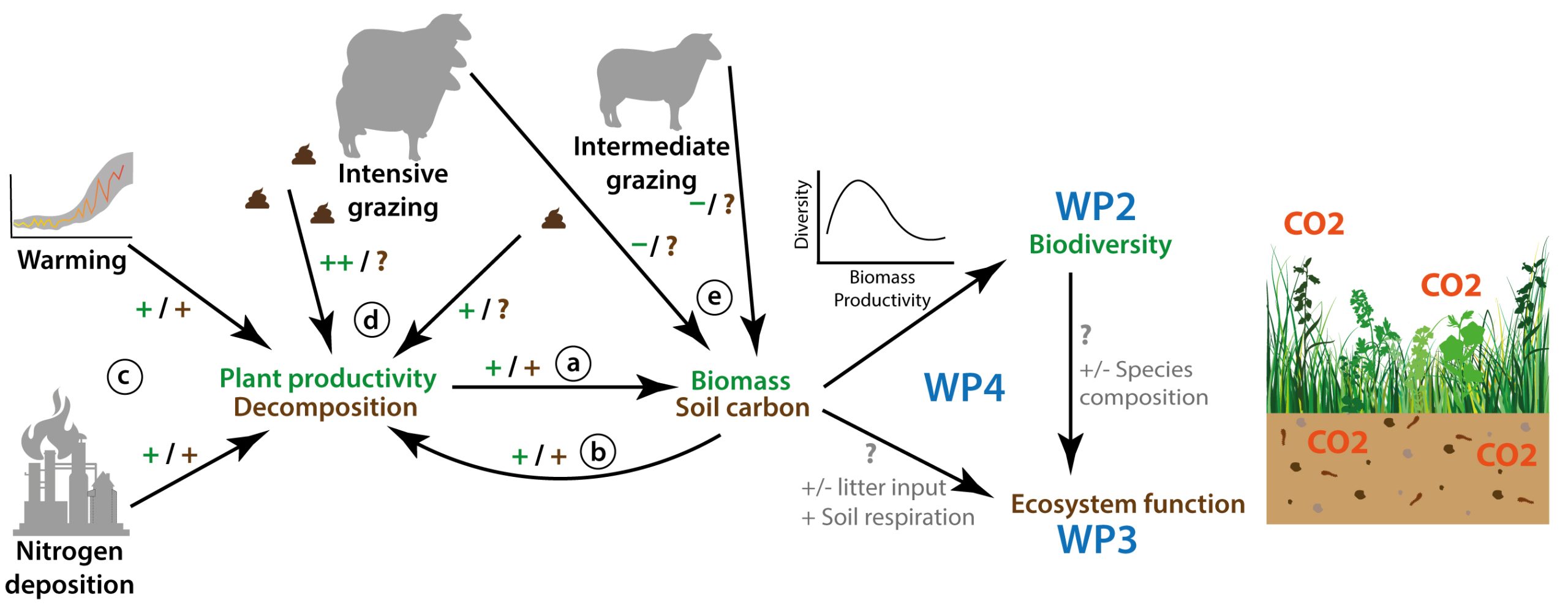Climate warming, nitrogen deposition and grazing are three global change drivers with impacts on important ecosystem functions and services like biodiversity and carbon cycling. Both climate warming and nitrogen deposition increase nutrient availability, decomposition, and plant productivity, with often negative impacts on the ecosystem. Grazing has similar effects on an ecosystem by increasing the nutrient input and productivity, but at the same time removes part of the biomass. Therefore, grazing can be beneficial for biodiversity and soil carbon, usually at an intermediate grazing intensity. Often grazing is seen as a useful management tool to mitigate negative impacts of global change. The effects of each single driver are relatively well understood, but in natural systems they will interact with complex effects on the ecosystem.
In THREE-D, we study:
1) How does grazing interact with climate warming and/or nitrogen deposition and affect biodiversity and ecosystem functioning in an alpine ecosystem?
2) When and at what level does grazing mitigate the effects of these two global-change drivers on biodiversity and ecosystem functioning?
We have set up a large-scale field experiment along an elevational gradient in the area of Flåm, western Norway and in the Gongga Mountains, China. Patches of vegetation were transplanted to lower elevation to simulate a warmer climate. We add different levels of nitrogen to some of the plots and clip the plots to simulate grazing. We record how the plants and the soil respond to these treatments over time.
Aud Halbritter, PI, UiB
Vigdis Vandvik, Senior PI, UiB
Richard Telford, UiB
Joseph Gaudard, PhD student, UiB
Hanna Lee, NTNU
Inge Althuizen, NORCE
Gunnar Austrheim, NTNU
Jake Alexander, ETH
Kari Klanderud, NMBU
Kristin Ryum, farmers' representative
Deborah Goldberg, University of Michigan
Genxu Wang, PI, Institute of Mountain Hazards and Environment
Yan Yang, IMHE
Baoli Duan, IMHE

